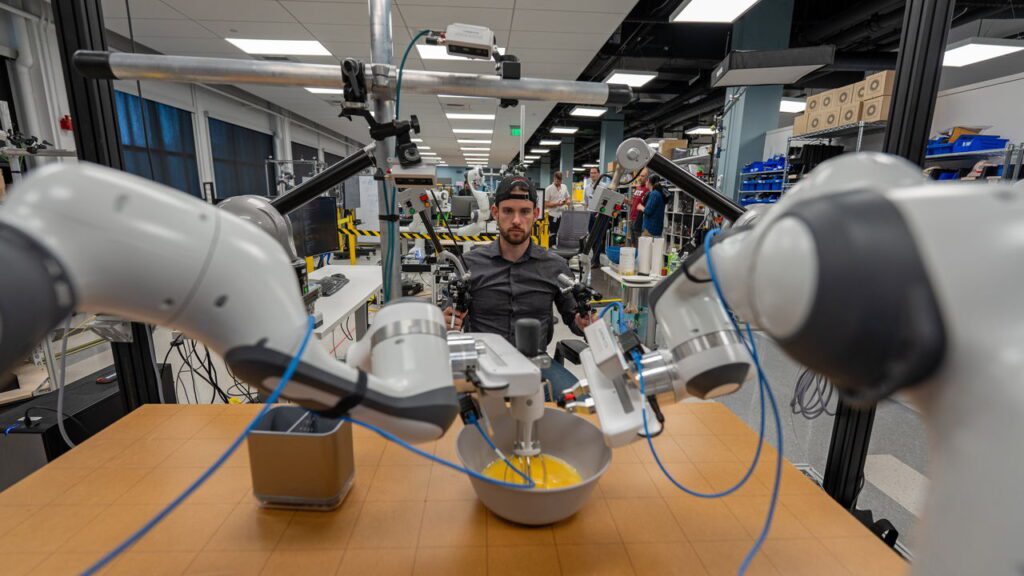Robots in the Kitchen: The Future of Cooking at the Toyota Research Institute
Picture this: Inside the bustling laboratory of the Toyota Research Institute (TRI) in Cambridge, Massachusetts, a group of robots is hard at work, whipping up delicious meals. While robotic chefs aren’t a brand-new concept, these particular robots are taking culinary skills to a whole new level. Flipping pancakes, slicing vegetables, and crafting perfect pizzas, these machines aren’t just programmed; they’ve learned and honed their abilities using the latest advancements in artificial intelligence (AI).
The Secret Sauce: Learning through AI
The remarkable thing about these culinary robots is not just their ability to perform basic cooking tasks but how they achieve that mastery. Instead of being meticulously programmed for specific actions, these robots are provided with a fundamental set of skills and left to learn through practice. Imagine a toddler learning to walk – they stumble, they fall, but with perseverance, they gradually improve. That’s the essence of what’s happening in this Cambridge kitchen. Through iterative learning, these robots quickly enhance their dexterity, learning from their mistakes and refining their techniques.
Real-Life Robotic Chefs
You might wonder how these robots compare to everyday cooking experiences. Picture a family kitchen in the heart of Boston, where a busy parent juggles making dinner while helping their kids with homework. Now, imagine having a robotic chef on hand that can slice vegetables or flip pancakes perfectly while you focus on other tasks. This kind of technology not only showcases innovation but also has the potential to change how we approach cooking and meal preparation in our homes.
Why It Matters
The implications of cooking robots extend beyond mere convenience. As we dive into the era of automation, the ability for machines to learn and adapt becomes crucial. It’s not just about saving time; it’s about breaking barriers in what we can achieve with AI in daily life. The combination of robotics and AI could lead to smarter cooking assistants, enhancing not just our cooking skills but also our culinary adventures.
A Taste of the Future
If you could whip up gourmet meals with the help of a robot that learns your preferences, would you? The idea isn’t so far-fetched. As these robots continue to develop, we might soon see them featured in our kitchens, restaurants, or even local food festivals in urban hubs like Boston.
Join the Conversation!
As we explore this groundbreaking technology, it’s hard not to get excited about the future of AI in our kitchens. Robots may soon revolutionize the way we think about cooking, making it more accessible, efficient, and even fun!
In conclusion, the innovation happening at the TRI is just the tip of the iceberg. The combination of AI and robotics is set to change the culinary landscape forever. The AI Buzz Hub team is excited to see where these breakthroughs take us. Want to stay in the loop on all things AI? Subscribe to our newsletter or share this article with your fellow enthusiasts.




